Convict hat sennets and leaf shredder
This shredding tool and ‘sennets’ or fragments of plaited cabbage tree palm leaves (Livistona australis) found beneath the floors of the Hyde Park Barracks were used by convicts for making hats.
Known as a castor or kelp in the convict ‘flash’ slang language, a good hat was very useful to a convict working under the punishing Australian sun. But government-issue caps provided no shade, so convicts improvised a solution. The Barracks convicts spent countless hours working by candle- and lamplight in the sleeping wards at night plaiting dried cabbage tree leaves that they had collected from the bush for sewing into wide-brimmed hats. Convicts were sometimes seen exiting the gates wearing several hats on their heads, to take them out to sell in town. Straw plaiting was taught to convicts in the hulks, and there were also numerous convicts accommodated at the Hyde Park Barracks with the trades of hat maker, milliner, hat finisher and hatter, who might have made such hats and taught the skill to others.
More artefacts
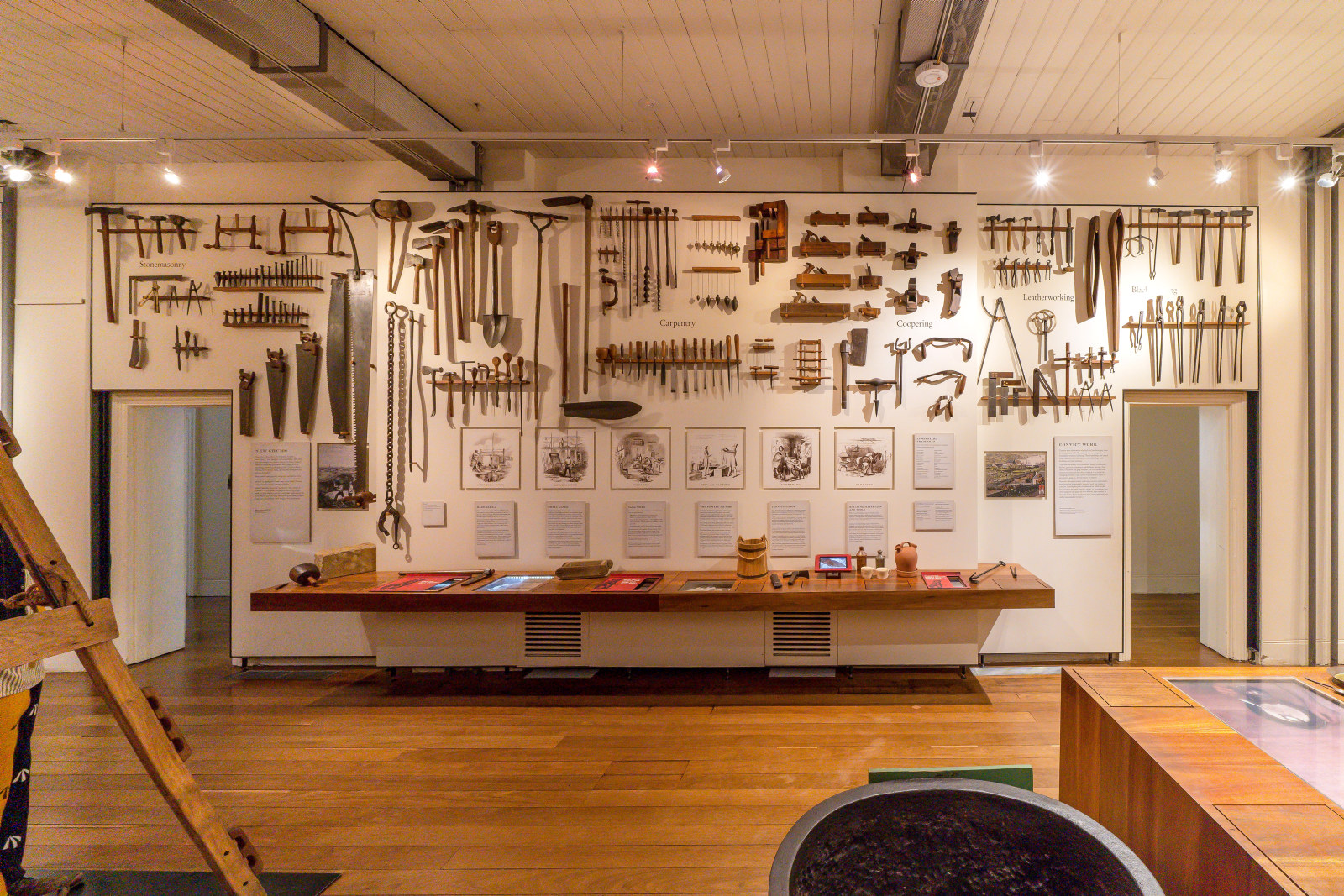
Convict Sydney
Objects
These convict-era objects and archaeological artefacts found at the Hyde Park Barracks and The Mint (Rum Hospital) are among the rarest and most personal artefacts to have survived from Australia’s early convict period
Published on
Convict Sydney
Browse all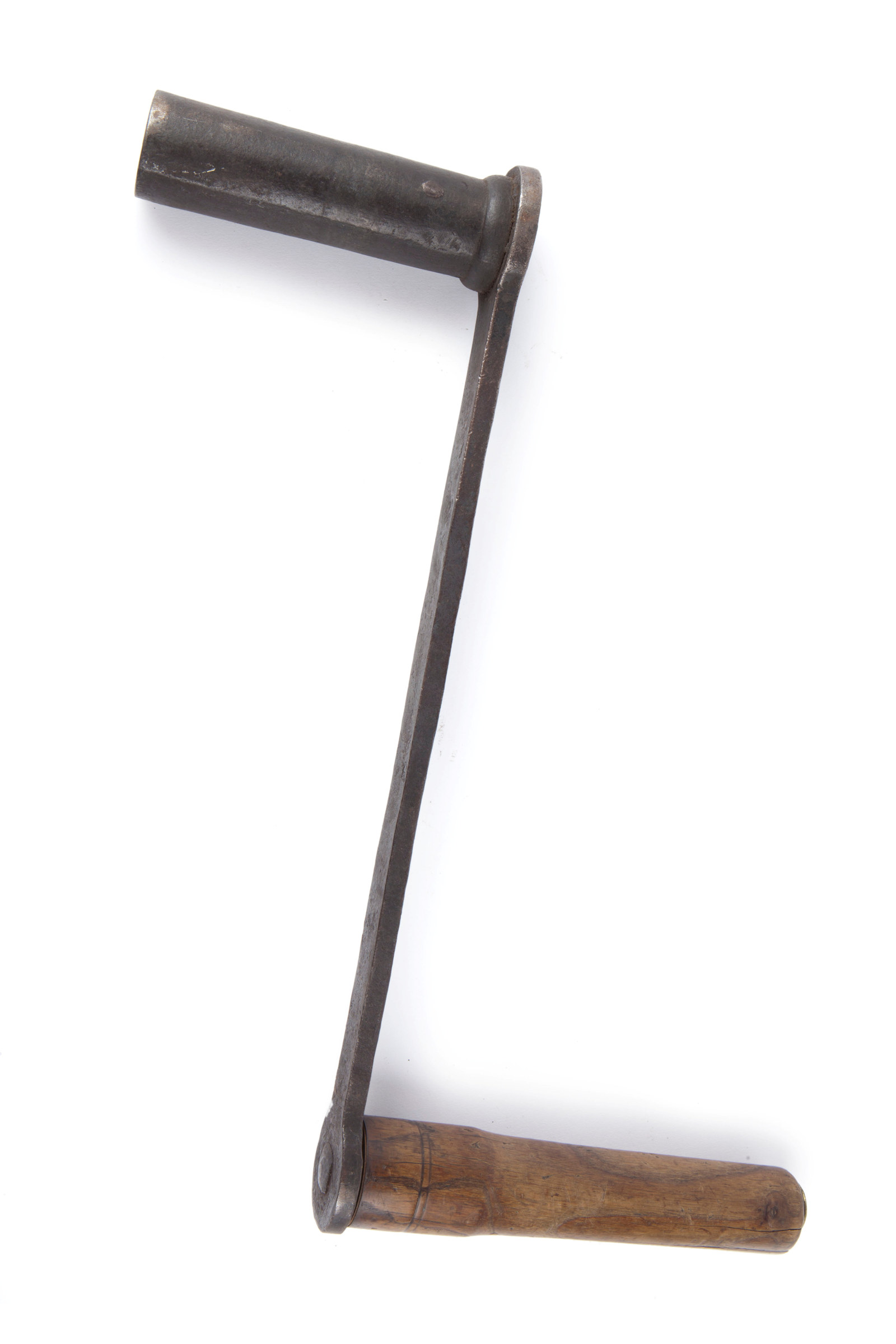
Convict Sydney
Clock-winding crank
This sturdy crank was used for many years to wind the Hyde Park Barracks clock
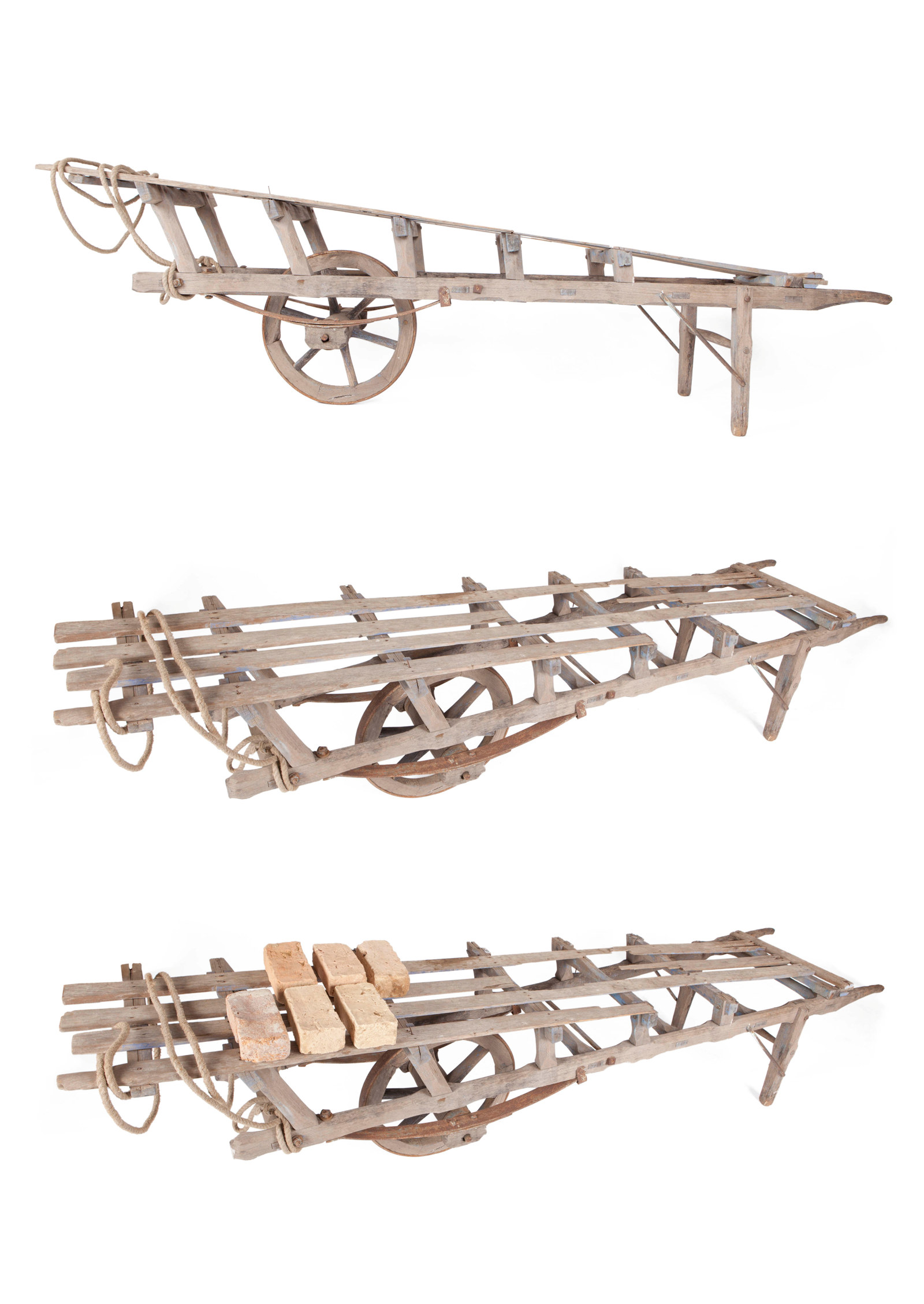
Convict Sydney
Hack barrow
Convict brickmakers working at the Brickfields (now Haymarket) used hack barrows like this one, stacking 20 or 30 wet bricks on the timber palings along the top, for transporting them from the moulding table to the ‘hack’ yard for drying
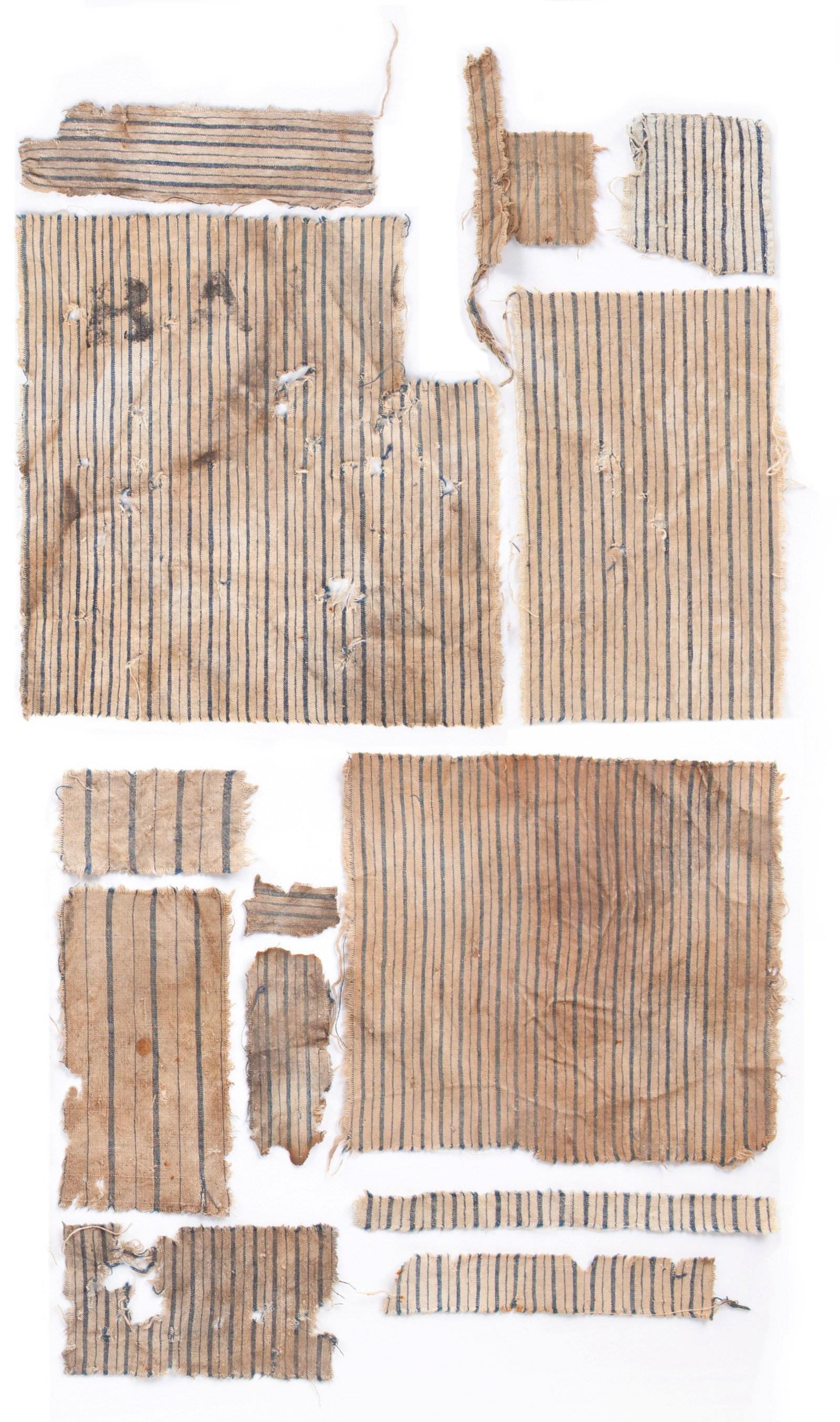
Convict Sydney
Convict shirt scraps
Deliberately torn into squares and strips, these scraps of convict shirt suggest that some convicts were recycling old clothing for new purposes
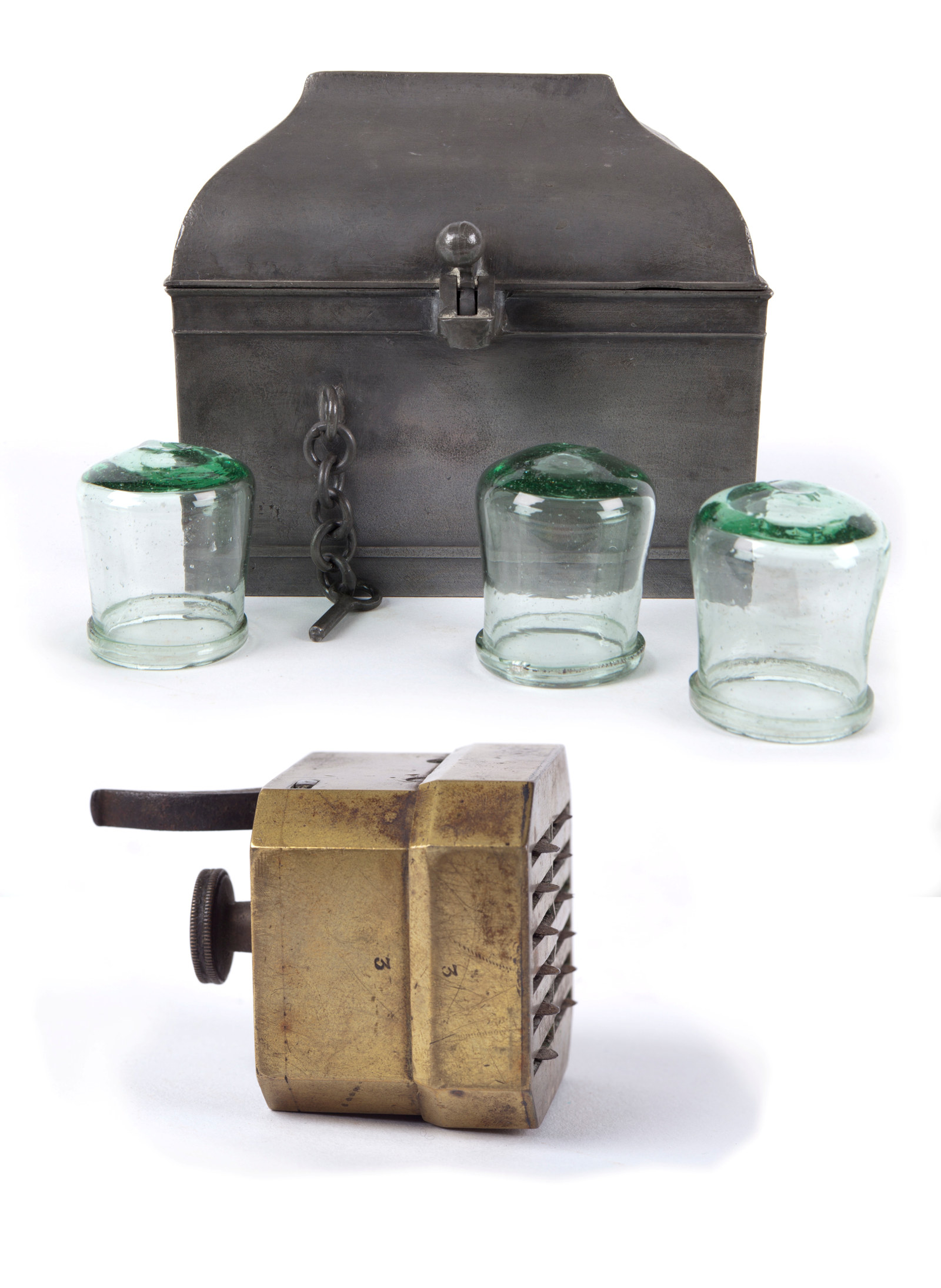
Convict Sydney
Cupping glasses and scarificator
These cupping glasses are of the type that was used in the treatment of convict patients at the General ‘Rum’ Hospital
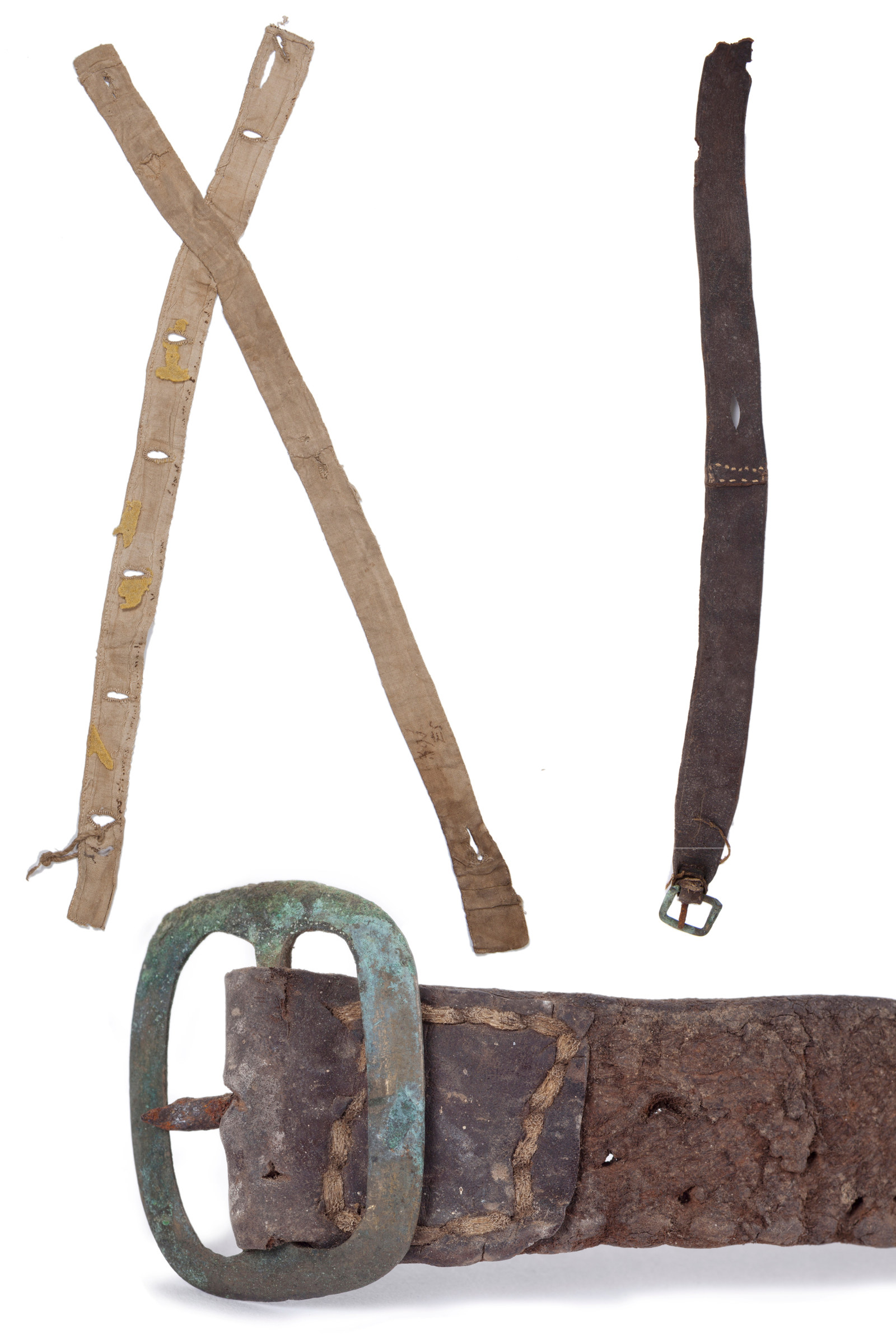
Convict Sydney
Convict braces and belts
Convict ‘slop’ clothing was one-size-fits-all, so some convicts had to improvise ways to keep up their baggy trousers
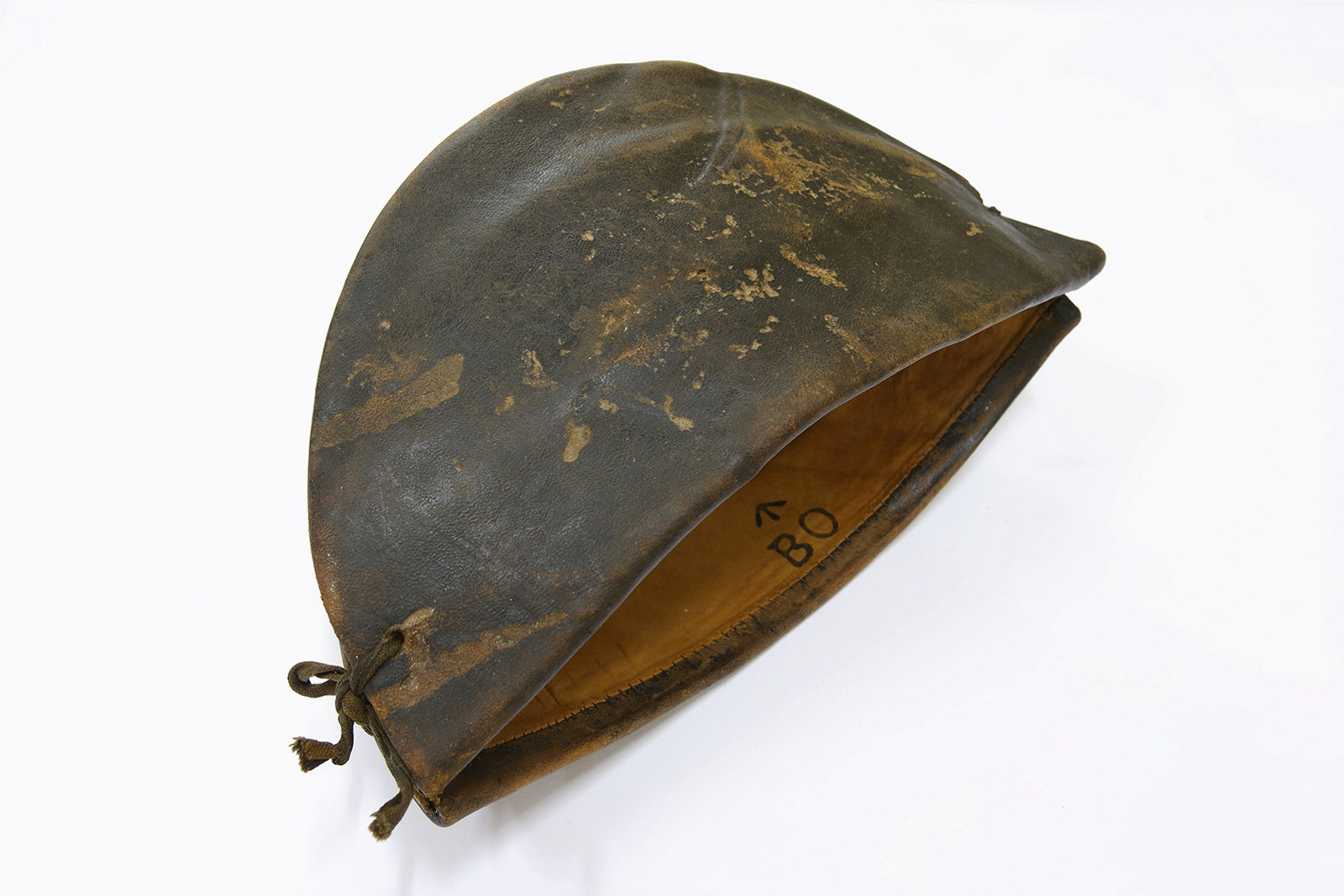
Convict Sydney
Convict cap
A hat was known as a castor or a kelp in the convict ‘flash’ slang language
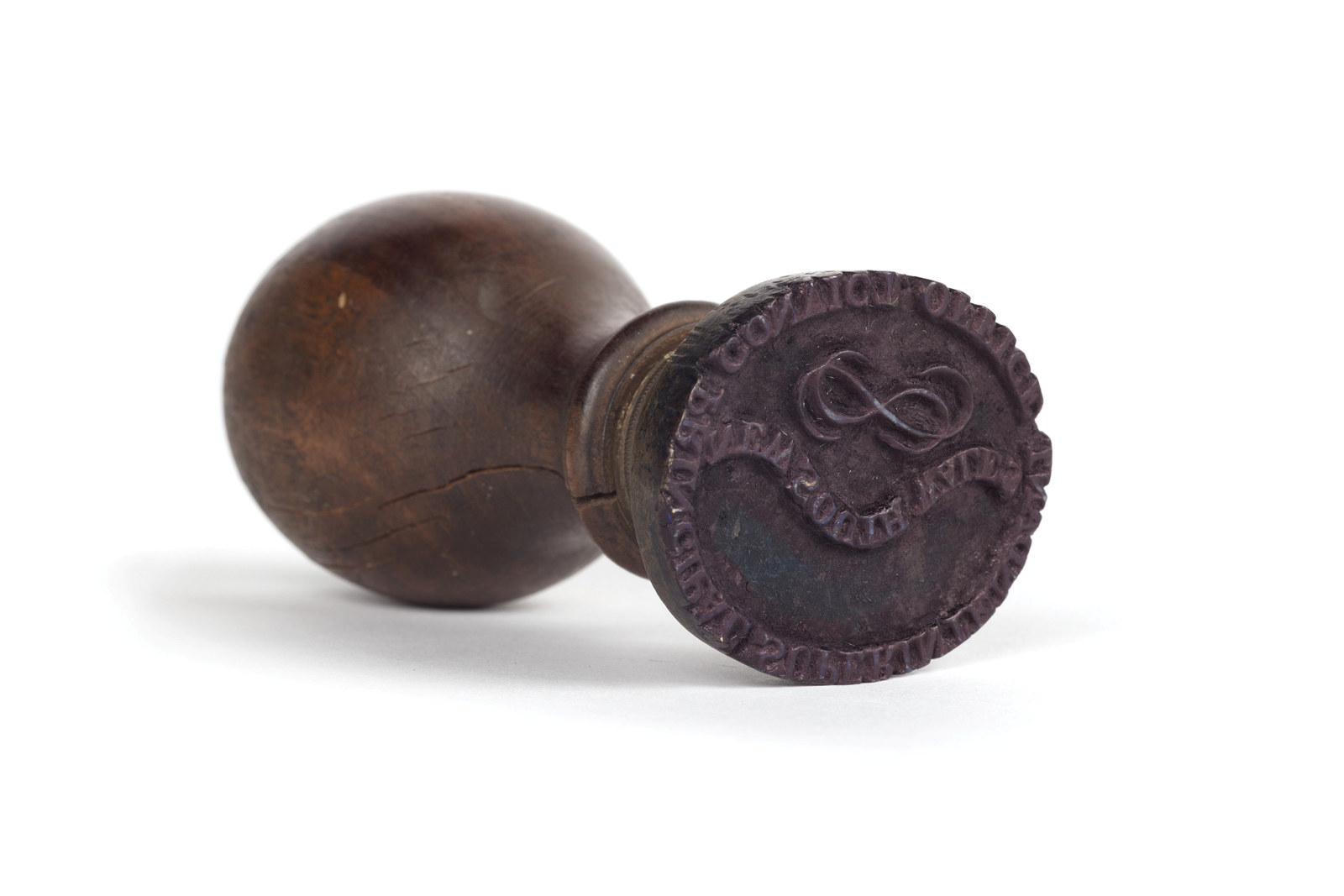
Convict Sydney
Brass stamp
Between 1830 and 1848, the superintendent’s office operated from the Hyde Park Barracks, where this stamp was most likely used on official documents and ledgers
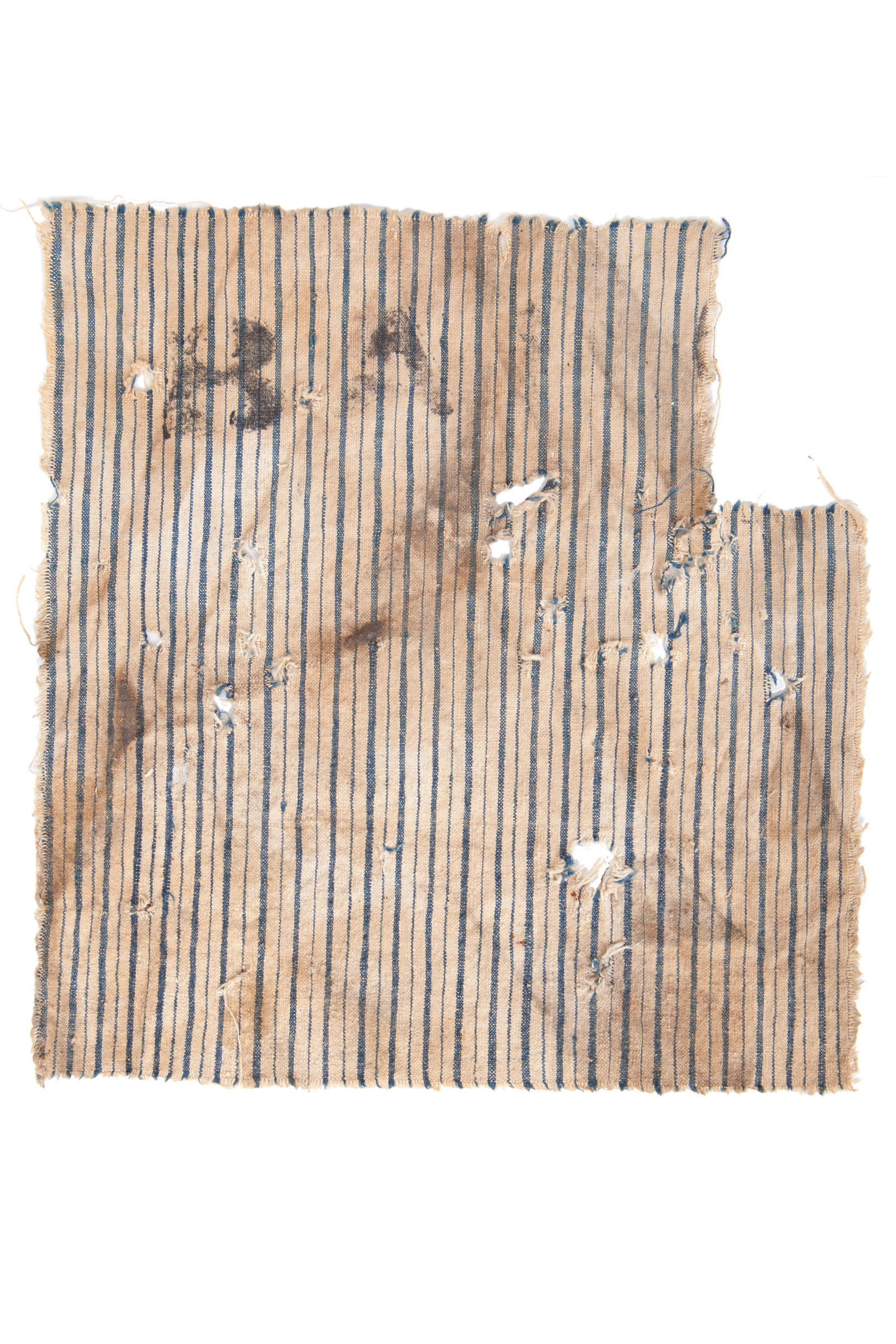
Convict Sydney
Convict shirt scrap, ‘B.A.’
This square scrap of striped convict shirt is curiously stamped with the letters ‘B’ and ‘A’
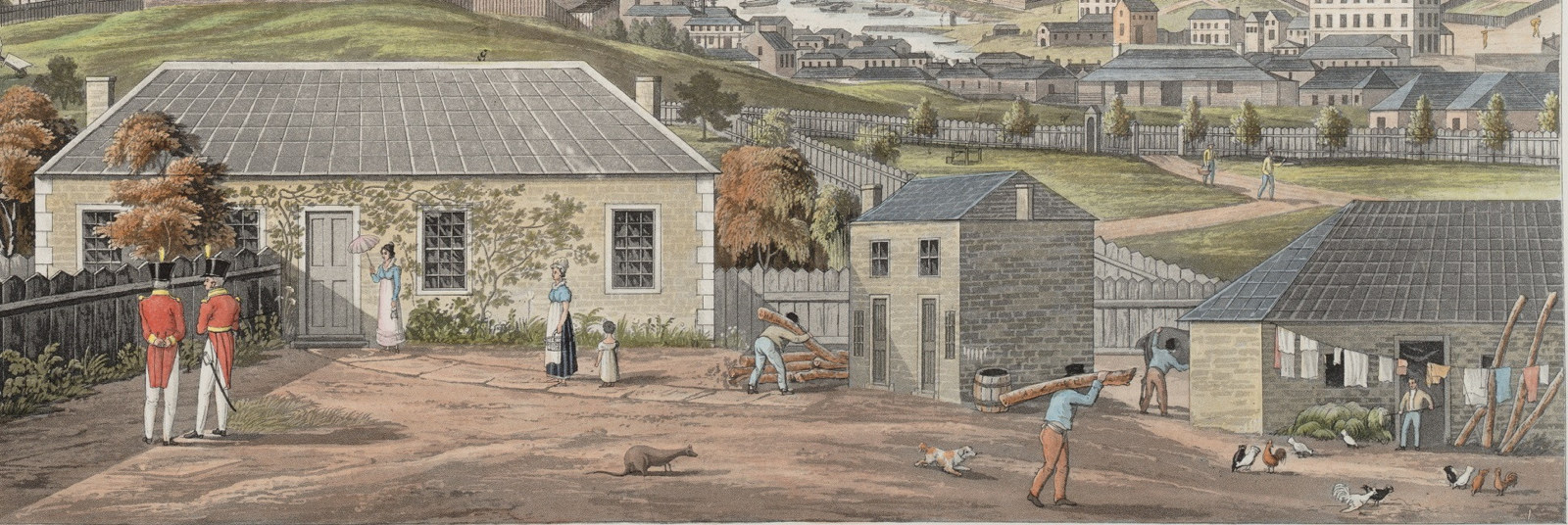
Convict Sydney
What was convict assignment?
‘Assignment’ meant that a convict worked for a private landowner
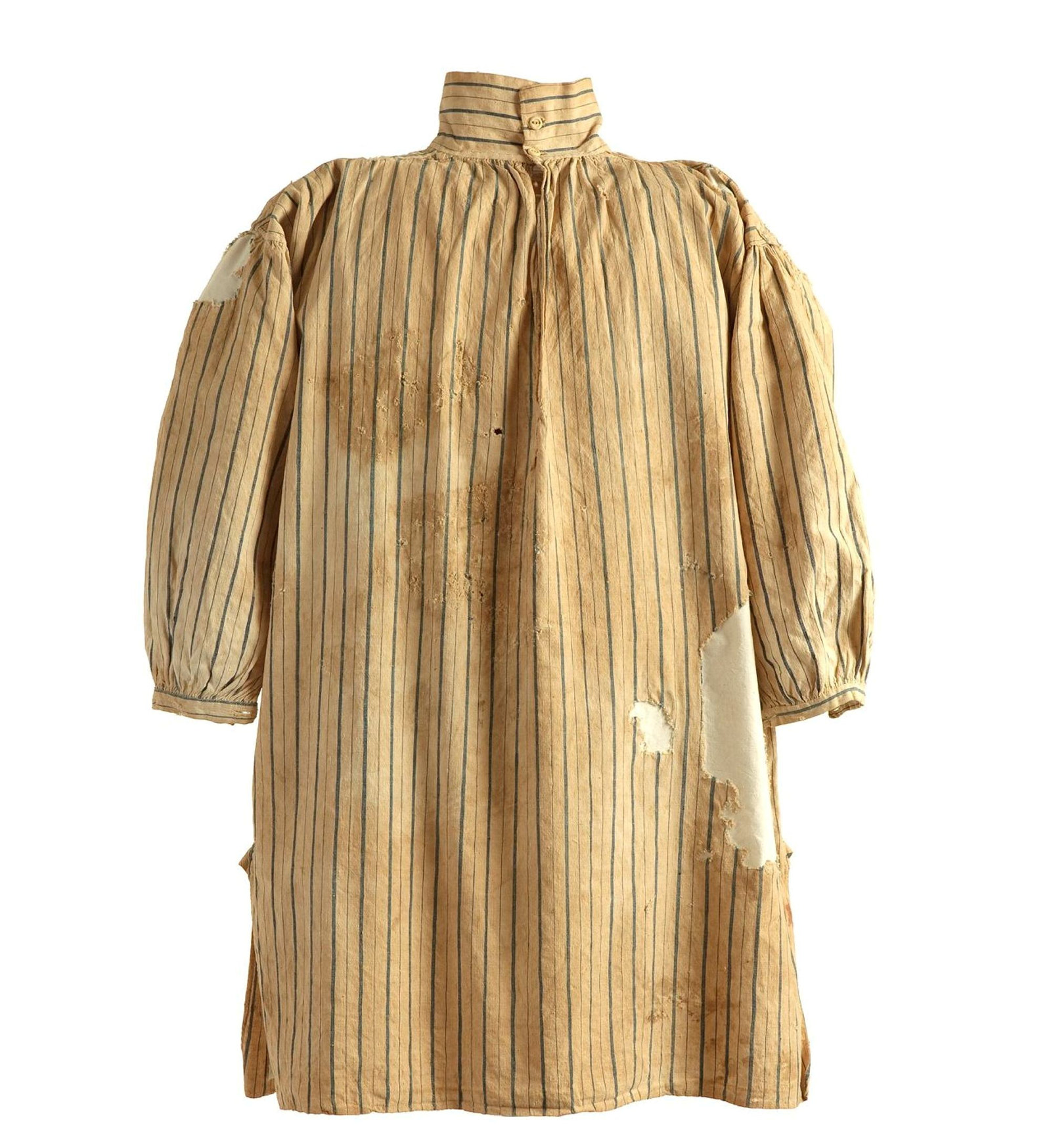
Convict Sydney
Convict shirt
Known as a smish, kemesa or flesh-bag in the convict ‘flash’ slang language, this convict uniform shirt has been worn, torn, stained and patched